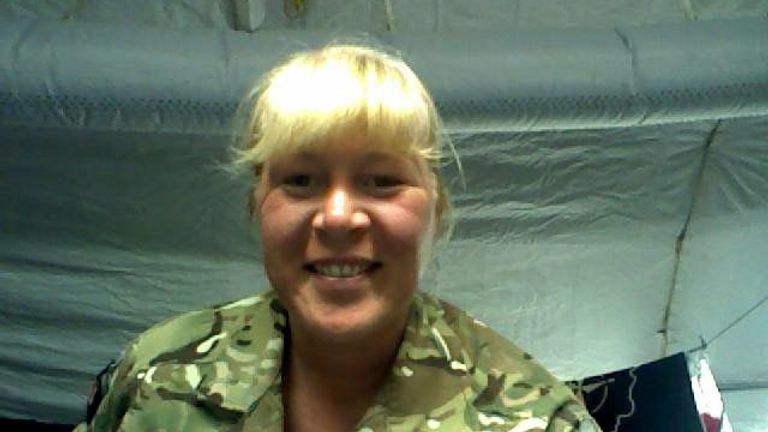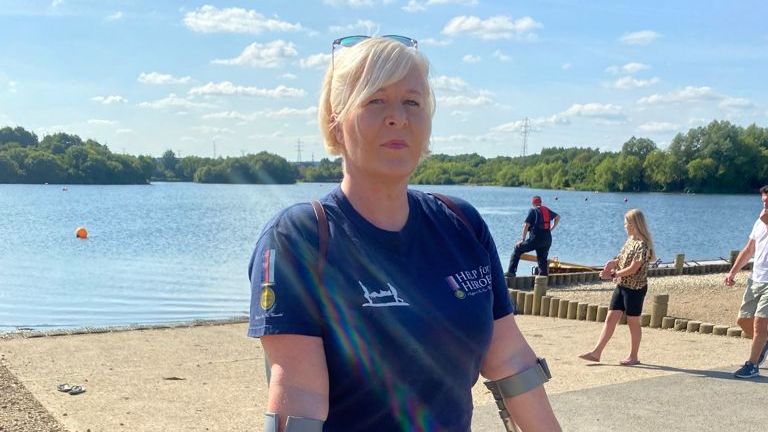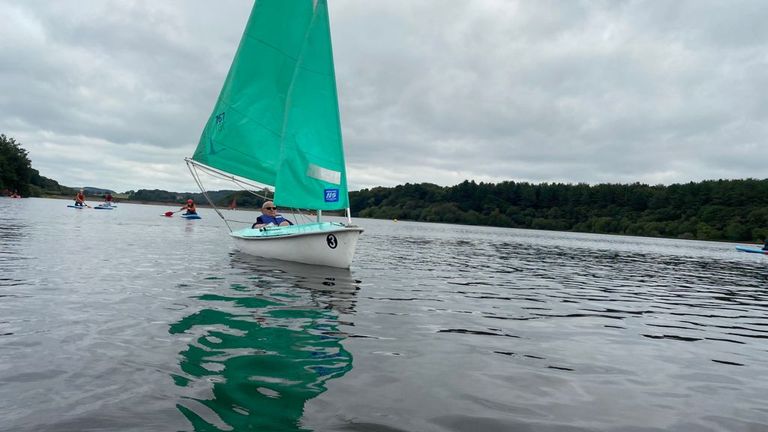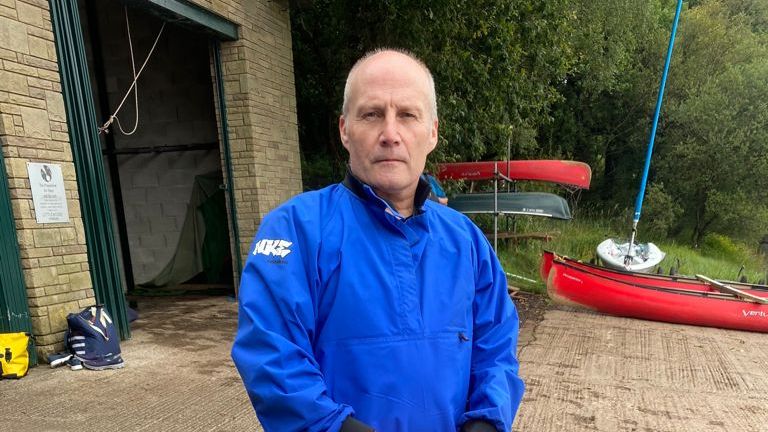Caroline Buckle, like many people, has been watching and reading the news coverage of the Taliban’s resurgence in Afghanistan.
But for her, seeing the chaos and crisis unfold feels extremely personal.
Ms Buckle worked in Camp Bastion with the British Army. She may have left over a decade ago, but she is still dealing with the impact that her service had on her mental health. Even seeing comments on social media about the situation in Afghanistan can be triggering for her.
“I can have a flashback in the middle of the day and I feel back in a situation that, you know, haunts me.”
Ms Buckle was diagnosed with anxiety, depression and post-traumatic stress disorder (PTSD). In 2014 she was medically discharged from the army.
“I’ve been able to suppress those sorts of feelings and if they come up, and I’m not ready for them, then it can put me into a panic.”
Ms Buckle has found support in the years since she left Afghanistan and the army.
“If things get too much. I know that I can make a call to Help for Heroes, I can make a call to the NHS services, or any of the other military charities out there.”
But she says that a lot of veterans who are struggling don’t know how to get help.
“Without the support that I had right at the start, that’s been ongoing, then I wouldn’t be in the place that I am now.”
Sapper Support is a helpline staffed by veterans for military personnel affected by PTSD.
Tim Evers, who runs the charity, says they have seen an increase in calls to the service since the Taliban regained control of Afghanistan.
“This has effectively ripped the band aid off and revealed that scab or old wounds. We’re getting calls from people in a lot of distress asking: ‘Why did we go? Was it worth it?'”
Mr Evers says his staff are there to offer advice or just listen.
“When we leave the service, there’s a transition period where the Ministry of Defence can help, and they do help. But at what point do they say, you know, you are a civilian now – there’s got to be a cut-off point.”
It’s at that cut-off point that veterans can find themselves in need of support, especially when it comes to living with PTSD.
The charity Help for Heroes was founded after the British Army was deployed to Afghanistan. They offer help to veterans who are coping with physical injuries, struggling with their mental health, or just in need of some company.
They run regular activity days throughout the country for those who’ve served in the military, including a monthly water sports session at The Anderton Centre in Chorley.
Veterans can sail across Lower Rivington Reservoir, some of them in boats that have been specially adapted for their disabilities.
Follow the Daily podcast on Apple Podcasts, Google Podcasts, Spotify, Spreaker
Duane “Fletch” Fletcher, comes here to help and to have fun. He completed two tours in Afghanistan, and is now a clinical advisor at Help for Heroes.
“The biggest message I could get across would be if you need to speak to someone, please, please, please speak to someone. That initial commitment is the biggest, hardest step to take, to say: ‘I need help’,” says Mr Fletcher.
He also hopes that veterans watching the situation in Afghanistan can look back on their service with pride.
“It wasn’t wasted time and effort. What we did out there made a difference and that’s the key thing to take away.”
Veterans affected by PTSD or in need of advice can contact Help for Heroes through their website www.helpforheroes.org.uk. Or they can call Sapper Support on 0800 040 7873.




